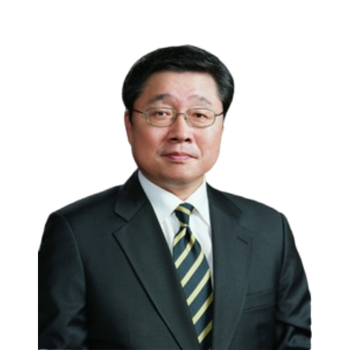
Sungdon Hwang
Professor Sungdon Hwang began his work as Dean of the Korean Institute of Technology and Culture (KITC) at the Samarkand International University of Technology (SIUT) from January 17, 2023. The main thrust of his deanship lies in his wish to provide the students of SIUT with opportunities to experience and learn how the Korean miracle has been achieved in such a short period of time. Professor Hwang established the thee departments and a center within the institute as a full 4 year bachelor’s program: (1) the Korean Green Technology Center, (2) the Korean Design Center; and (3) the Korean Digital Economy and e-Business Center; and (4) the Korean Language and Cultural Center.
Dr. Hwang is a Korean and has been a professor at Hankuk University of Foreign Studies (HUFS) in Seoul, Korea since 1997. After completion of his professorship for 25 years at this university, he was appointed as professor emeritus of public administration on March 1, 2022. In Korea, he earned his bachelor’s degree from HUFS in 1979 and master’s degree from Seoul National University in 1981. He went to the Unites States of America in 1984 for graduate level higher education. He earned another master’s degree from the Hubert H. Humphrey Institute of Public Affairs at the University of Minnesotin 1989 and Ph.D. degree in political science from the graduate school of the University of Minnesota in 1991. Returning to his homeland Korea, Dr. Hwang the Korea Institute of Public Administration as a senior researcher to open the institute with the Ministry of Government Administration. As he was doing creative research in the field of government reform and anti-corruption measures, writing and publishing academic papers and books, writing columns on diverse newspapers, and appearing in various TV debate programs dealing with government administration and politics, Dr. Hwang was scouted by the President Yongsam Kim of Korea to serve as his policy secretary. He served two positions consecutively at the Office of the President of the Republic of Korea: Secretary to the President on Government Reform (1995~1996) and Secretary to the President on Social Policies (1996~1997). Modernization of the government personnel administration and revolutionary changes in managing government affairs using information and communication technologies (ICT) in Korea was his major contributions. Dr. Hwang served as a member of the Presidential Commission on Policy Planning under President Daejung Kim in 2002. In the same year, he was awarded the Red Stripes Order of Meritorial Services for these contributions by the President Daejung Kim. He contributed as an editorial board member to such prominent academic journals as Information, Communication and Society published by Routledge in England and International Area Review published by the Center for International Area Studies, the Graduate School of Area Studies at Hankuk University of Foreign Studies, and The e-Bridge, an academic journal of the Korean Association for Information Processing.
Professor Hwang devoted himself to enhancing public causes. He founded the Citizens’ Coalition for Better Government in 1997 and served the Hansun Foundation for Feedom and Prosperity as the chairperson of the Policy Committee in 2014. The Hansun Foundation is a non-profit and non-governmental think-tank in Korea. Professor Hwang founded an internal organization named the Silk-Road Universities Network (SUN; www.sun-silkroadia.org) in 2015 in collaboration with thirty universities located along the land and maritime Silk Roads from Portugal to Japan and has served as the Secretary-General of this organization since then. SUN is now composed of eighty seven universities located at 65 cities and 26 countries along the Silk Roads. The network is comprised of more than 800,000 students, professors, and researchers.
Professor Hwang as Secretary-General has executed diverse programs enhancing academic as well as cultural co-operations among member universities of SUN. They include general assemblies in which heads and representative students of member universities gather together annually at the campus of host universities to review all the activities done by SUN Secretariat since the previous general assemblies and make decisions about key activities of SUN for forthcoming years; international academic conferences by the International Association for Silk-Road Studies (IASS) in which professors, researchers, graduate students of member universities convene annually to present and exchange their ideas and research findings in various fields of science and studies; international join-research by the researchers of member universities to which SUN Secretariat channels research funds; development of courses to be taught jointly by professors of member universities; exchanges of professors and students among member universities; the annual contests for the students of member universities such as PHOCOS (Photo Contest of SUN), WRICOS (Writing Contest of SUN), and S-DECOS (Speech and Debate Contest of SUN); annual concerts by the Silkroadia Philharmonic Orchestra; and “Amazing Silk Roads” which is an expedition program for the students and professors of the member universities to travel and study diverse parts of the land and maritime Silk Roads. The Samarkand International University of Technology has become a member of SUN. This means that all the students and faculty members of SIUT now can enjoy all of these programs provided by SUN.
Professor Hwang is fond of listening to classical music, watching movies, hiking, fishing, traveling, and playing Ping-Pong. He has been a husband to Hyangwoo Lee since 1983 and now is a father of two daughters and a son and the grandfather of two grand-daughters. He has fallen deeply in love with Samarkand and Uzbekistan, fascinated especially by their cultural diversity, openness of their people, thick layers of their history as a central point of the Silk Roads, and most importantly the great potential and dynamism of Samarkand and Uzbekistan to realize a miraculous development in all respects of society in the near future.

